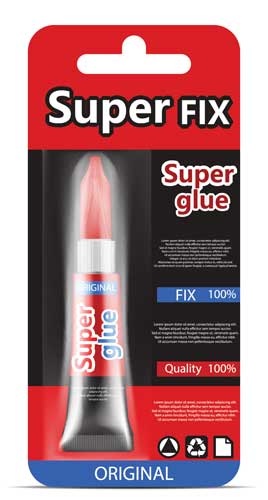
Blister Board Packaging
Blister packaging, sometimes called card packaging is a cost-effective method for packaging and marketing consumer products using a clear blister pack sealed to a decorative blister card. The full color blister card, coated with either a solvent based or water-based coating, is sealed to a clear PVC, styrene, PET or RPET thermoformed blister.
Blister cards and blister packs are produced either as part of a combination run or as a dedicated run. Combination runs are the most economical because it spreads the set-up costs and tooling over various customer cards printing on the same sheet.

Common uses for blister packaging include:
- Retail Shelf Packaging
- Ink Pens
- Razors
- Dental Floss
- Hardware
- Cosmetics
Some features of blister packaging include:
- Solvent and water-based heat seal coatings
- 4-color process printing plus PMS match colors
- Special match colors available
- Photo quality offset printing
- Wide material selections including recycled stocks and various thicknesses
- Specialty die cutting
Common types of blister packaging include:
Face Seal Blister
A Face Seal Blister Card is a printed edge to edge coated card with a plastic flanged and formed clear blister that surrounds the product and heat sealed to the front of the card. This is very common and cost-effective blister pack for smaller and lighter weight retail items. It provides full product visibility, full or partial product protection, great for hang hook displays. Office products like pens and paper clips, tooth brushes and other light weight cosmetics are many times packaged in face seal blisters.
Full Face Seal Blister
A Full Face Seal Blister Card is similar to the Face Seal Blister but extends to cover the entire face of the card. This offers more durability and strength then the Face Blister. It too provides full product visibility, full or partial product protection and even stronger for hang hook displays. Lip balms, cosmetics, fingernail polishes and razors are typically packaged in full face seal blisters.
Trapped Blister
A Two-Piece Trapped Blister Card consists of two cards, with the blister flange trapped between them, and sealed together. Trapped blisters do always require heat so expensive heat sealing equipment is not required This offers even more durability and strength along with improved theft and damage protection. It too provides full product visibility, full product protection and even stronger for hang hook displays. Items like batteries, door locks, automotive replacement bulbs and accessories are commonly packaged in trapped blisters.
Clam Shell with Insert Card
A clam shell is a thermoformed plastic package that has hinges and contain a full printed card. This is premium packaging for heavier and more costly items requiring more durability, strength and extended shelf life. It too provides full product visibility, full product protection and even stronger for hang hook displays. Items like say blades, batteries, door handles and locks are commonly found in clam shell packaging.
Other plastic packaging options include Tear Resistant Blister Cards, Mock Clam Shells, 2-piece Clam Shells and Tri-fold Clam Shells.
Skin Board Packaging
Skin packaging also known as skin board packaging is a low-cost method for displaying a product using a printed decorative backer board and a heated clear Surlyn film on the skin packaging.
Skin board is specially formulated paperboard of corrugated board that is manufactured with microscopic pores to allow air to pass through during the process. After the board is printed with your custom graphics, a heat activated adhesive is applied to the face of the board.
Heated plastic film is draped over the product and the substrate, and a vacuum draws the film down tightly to the board and around the product to make a secure and attractive package. Wherever the hot plastic meets the adhesive, a bond is formed.
